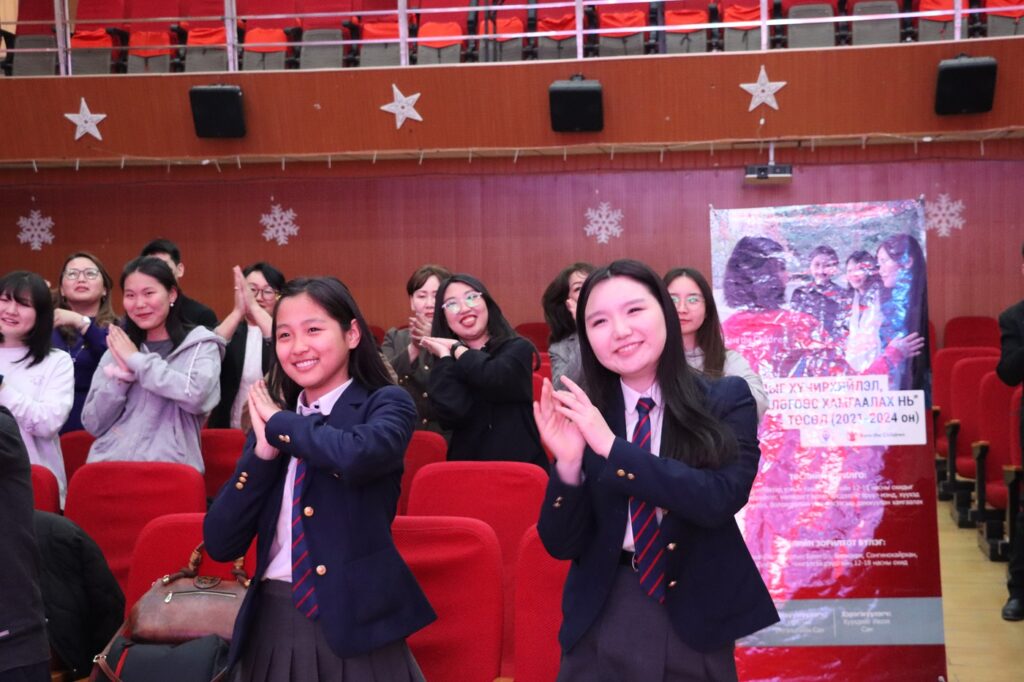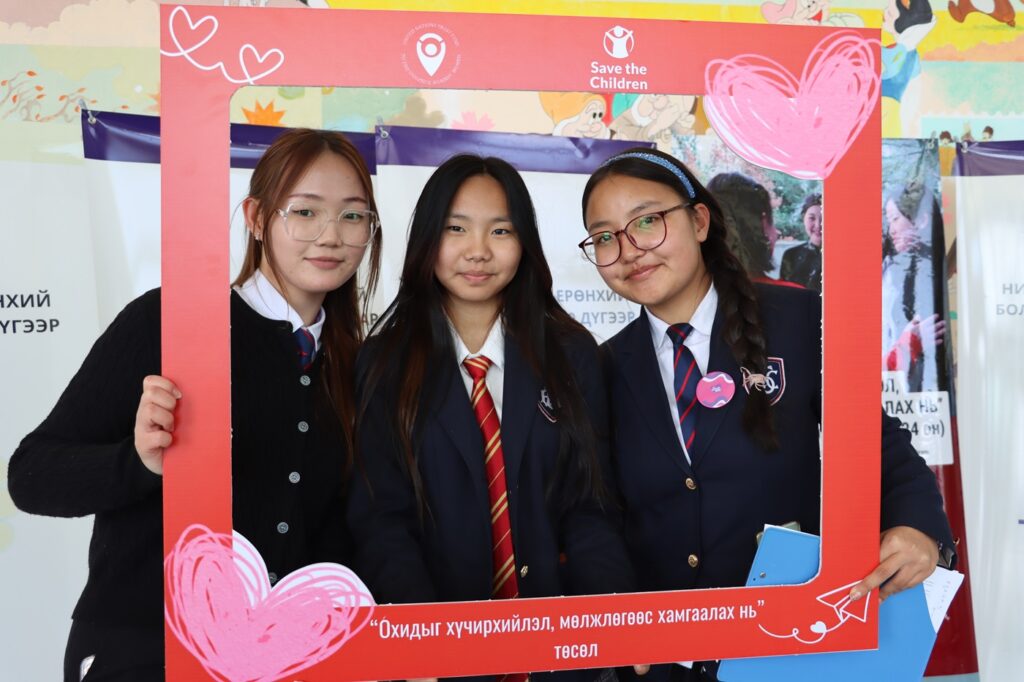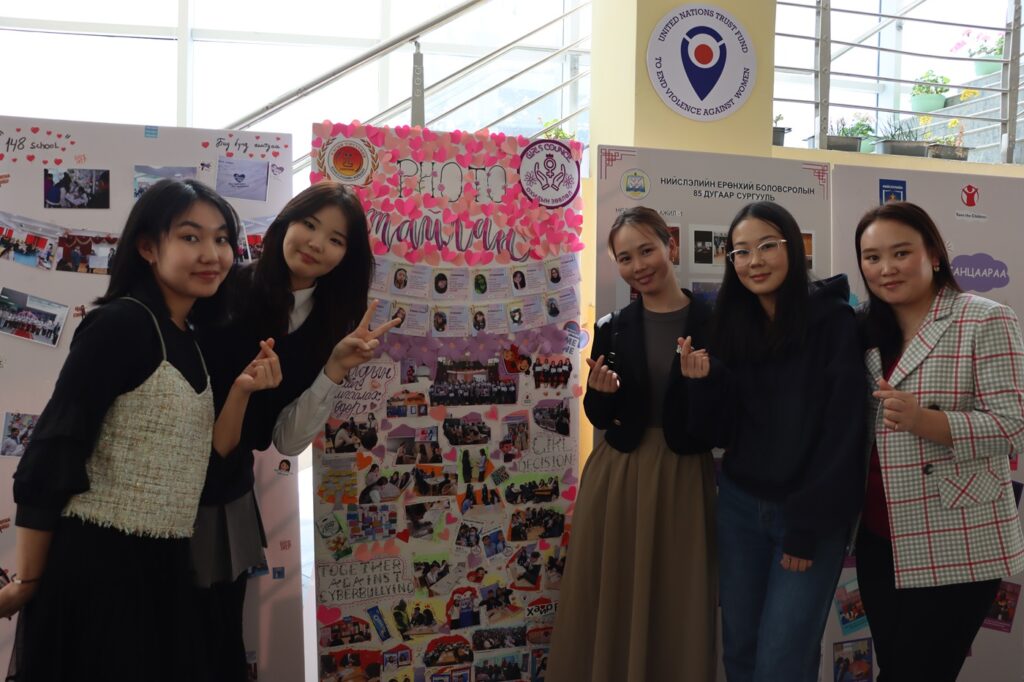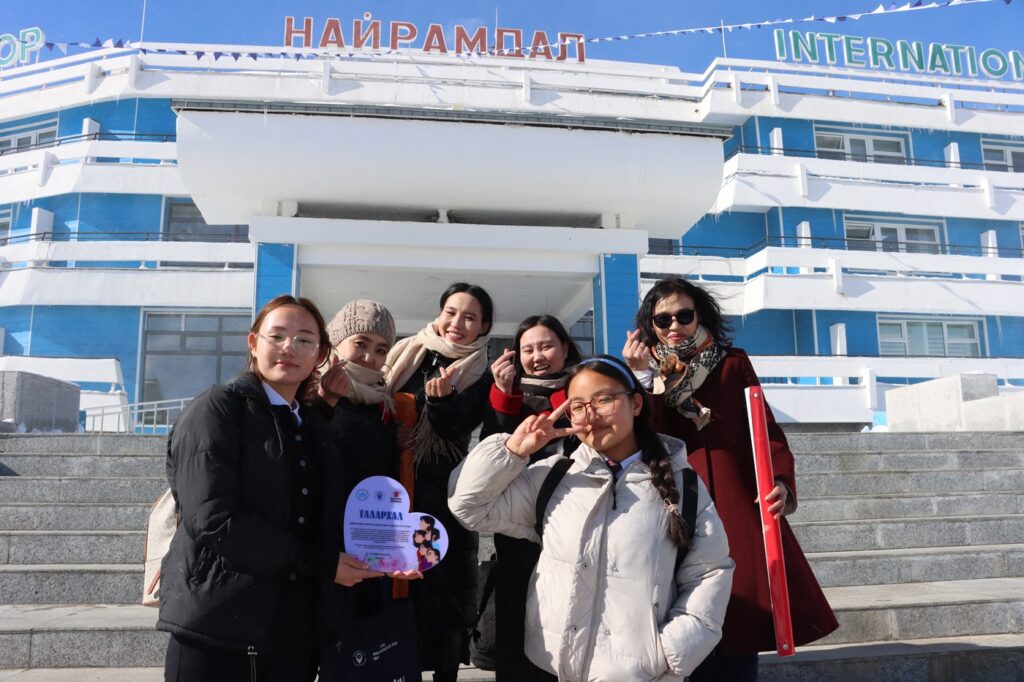Strengthening child protection through school-based advocacy
Schools play a vital role in shaping young minds. They foster a sense of self-confidence and trust in others, equipping students with the critical skills to become lifelong learners who seek out evidence-based knowledge. Additionally, schools serve as a foundation for understanding and adhering to social norms, which inherently contributes to the development of risk-prevention capabilities.
Building upon this foundation, the “Protecting Girls from Violence and Exploitation” project targeted 15 schools across five districts in Ulaanbaatar, Mongolia. These districts included Bayanzurkh (schools No. 148, 79, 85), Sukhbaatar (schools No. 3, 16, 31), Songinokhairkhan (schools No. 121, 9, 107), Bayangol (schools No. 40, 19), and Chingeltei (schools No. 13, 24, 57, 117). The project aimed to empower girls aged 12-18 with the knowledge and skills to protect themselves from violence and exploitation in collaboration with schools. This included raising awareness, recognizing risks, prevention, and identifying resources for support.


To achieve these goals, four outreach activities were organized between 2023 and 2024, engaging over 33,000 participants including teachers, staff, students, parents, and guardians. The project culminated in a closing ceremony held on March 25, 2024, at the International Children’s Nairamdal Complex. This event provided a platform for all 15 schools to share best practices, learn from advocacy efforts, and celebrate the positive changes brought about by the project.
Sugaraa, a social worker at School No. 13, highlighted the project’s positive impact. “Our collaboration with Save the Children has been highly effective,” she stated. “The ‘Protecting Girls from Violence and Exploitation’ project has yielded significant results. We’ve observed a decrease in peer bullying within our school. Importantly, our students, particularly girls, have gained valuable knowledge on preventing violence. This includes learning to identify safe and unsafe situations, empowering them to make informed choices.”
The project’s focus on school-based advocacy has demonstrably strengthened child protection capacities within participating institutions. This has translated into significant improvements in student knowledge and attitudes.
Baasandemberel, a student at School No. 117, shared her experience: “I came to realize that respect is essential for everyone; it’s not just about boys respecting girls. Additionally, we’ve learned to seek help from teachers, school social workers, and parents if someone touches us inappropriately, bullies us, or verbally abuses us.”


To ensure the project’s continued impact, the closing featured group discussions where participants brainstormed recommendations for further strengthening child protection within schools. These proposals will be compiled and submitted to school management for consideration.
Tsogzolmaa, Head of the Department of Children’s Rights, Development and Protection at the Capital Education Department, commended the project’s success. “The project’s advocacy efforts effectively disseminated valuable information and knowledge, resulting in significant progress,” she stated. “Moving forward, the key task lies in ensuring each school can localize these learnings and integrate them into their long-term activities.”
The school-based advocacy work yielded several positive outcomes. Teachers gained valuable skills in supporting and promoting student participation. This not only empowered students but also enhanced the school’s capacity to identify and prevent potential violations of children’s rights, including violence. We express our sincere gratitude to the Municipal Department of Education, collaborating professional organizations, contract teachers, the management and staff of the 15 participating schools, and the girls’ club students for their contributions to the project’s success.

